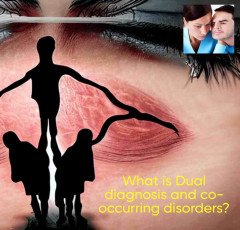
What is Nicotine addiction and smoking cessation ?

The physiological and psychological dependence on nicotine.
A highly addictive chemical present in tobacco products including cigarettes, cigars, and chewing tobacco, is referred to as nicotine addiction. When a person's body becomes acclimated to the presence of nicotine, they develop a nicotine addiction and experience withdrawal symptoms when their nicotine consumption is reduced or stopped.
Smoking cessation, commonly referred to as quitting smoking, is the process of giving up tobacco and overcoming your dependence on nicotine. Because nicotine is so addicting and the withdrawal symptoms can be unpleasant, quitting smoking can be difficult. But giving up smoking has numerous health advantages and can greatly lower the risk of contracting smoking-related illnesses like lung cancer, heart disease, and stroke.
Nicotine replacement therapy, medicines, counseling, and support groups are just a few of the techniques and treatments that are available to assist people stop smoking.
To help control withdrawal symptoms and lessen nicotine cravings, nicotine replacement therapy (NRT) uses items like nicotine gum, patches, lozenges, or inhalers. NRT products are accessible over-the-counter and come in a range of strengths, allowing users to progressively cut back on their nicotine use.
To assist people in quitting smoking, doctors may also prescribe drugs like bupropion and varenicline. These drugs function by lessening nicotine addiction withdrawal symptoms and cravings.
Individuals who want to stop smoking can also benefit from counseling or support groups.
These programs give people the techniques and resources they need to control their desires and form better habits. Different settings, such as individual treatment, group therapy, or telephone support services, can be used to deliver counseling.
Quitting smoking is a process that calls for dedication, encouragement, and persistence.
It's crucial to keep in mind that relapse and setbacks are both typical and inevitable parts of the recovery process. However, it is feasible to stop smoking and benefit from a smoke-free lifestyle with the correct tools and assistance.
There are numerous other advantages to quitting smoking in addition to the advantages to physical health.
By lowering your risk of acquiring a number of health issues, such as respiratory infections, chronic obstructive pulmonary disease (COPD), and cardiovascular disease, for instance, quitting smoking can enhance your overall quality of life. Additionally, it can boost your energy levels, enhance your perception of taste and smell, and enhance the health of your skin.
Since smoking is costly and can have a substantial negative impact on your finances over time, giving up can also have financial advantages. Additionally, giving up smoking can lower your chance of fires and other mishaps with smoking-related products.
To create a strategy that will work for you if you want to stop smoking, it's necessary to speak with your healthcare physician or a smoking cessation specialist. You can stop smoking and benefit from the many advantages of a smoke-free life, even if it takes some time and effort. All you need is the correct assistance and resources.
It should be noted that stopping smoking can be a difficult process, and some people could need several tries to succeed. When trying to stop using, it's crucial to be patient and persistent, as well as to ask for assistance and support when necessary.
When they stop smoking, some people could also feel the withdrawal effects of nicotine.
Irritability, anxiety, depression, sleeplessness, and difficulties concentrating are a few of these symptoms. With the assistance of a medical professional or smoking cessation specialist, these symptoms can be handled.
A serious disorder, nicotine addiction can have a negative influence on one's health and quality of life.
But it is feasible to stop smoking if you have the correct resources and assistance. If you smoke and are thinking about stopping, speak with your doctor or a smoking cessation professional to create a strategy that works for you.
To understand that quitting smoking is good for society as a whole as well as for the individual.
Reducing tobacco usage can significantly improve public health because it is a main cause of avoidable deaths and illnesses worldwide.
Tobacco tariffs, smoke-free regulations, and public health campaigns are just a few of the policies and initiatives that governments and public health groups have put into place to lower tobacco usage. It has been demonstrated that these initiatives are successful in lowering tobacco use and enhancing public health outcomes.
Important issues like nicotine addiction and quitting smoking have a big impact on both individual and societal health.
If you smoke, quitting is one of the most crucial things you can do to enhance your health and wellbeing. There are many of tools and resources out there to support you as you make the transition to a smoke-free lifestyle.
Additionally, it's important to keep in mind that smoking might have a negative effect on others' health, particularly those who are exposed to secondhand smoke. Exposure to secondhand smoke increases the risk of respiratory infections, asthma, and heart disease, among other health issues. Secondhand smoke contains many of the same dangerous components as cigarette smoke.
Quitting smoking can have a good effect on the health of others around you in addition to improving your own health. Furthermore, giving up smoking might serve as a terrific example for friends and family members who may be thinking about doing the same.
It can be difficult, but giving up smoking is a desirable process that has advantages for both smokers and society as a whole. Anyone can stop smoking and benefit from the many advantages of a smoke-free life with the correct encouragement and tools.
More important to note that there are a number of substitute methods for delivering nicotine, including e-cigarettes and vaping. Although some people might use these products to stop smoking regular cigarettes, it's crucial to remember that they come with their own risks and potential downsides.
The long-term implications of e-cigarette use are still being studied, and some studies have indicated that vaping may be linked to respiratory issues, cardiovascular illness, and other health issues. Additionally, it has been noted that child e-cigarette usage is a significant public health concern because it raises the possibility of nicotine addiction and subsequent tobacco use.
It's crucial to discuss the potential dangers and benefits of using e-cigarettes with your healthcare practitioner or a smoking cessation specialist if you're thinking about using them to stop smoking in order to create a strategy that works for you.
Important issues like nicotine addiction and quitting smoking demand constant attention and funding.
Anyone may stop smoking and benefit from the many advantages of a smoke-free life with the correct help and resources. Quitting smoking is a difficult but attainable goal.
There is no one-size-fits-all approach to quitting smoking, so what works for one person might not work for another. For this reason, it's crucial to look for a variety of tools and support to help you find the quitting strategy that is most effective for you.
NRT or medicine may be effective for some people, while counseling or support groups may be helpful for others.
Additionally, it's crucial to modify your way of life to support your efforts to stop smoking, such as engaging in regular exercise, learning stress-reduction strategies, and avoiding situations that can provoke smoking.
To keep in mind that giving up smoking can be a lengthy process that requires patience.
It's crucial to persevere and keep working toward your goal of quitting even if you have a setback or relapse. Anyone may effectively stop smoking and benefit from the many advantages of a smoke-free life with the appropriate attitude and assistance.
In addition to overcoming the physical dependence on nicotine, quitting smoking involves altering smoking-related habits and conduct. This could entail discovering fresh ways to deal with stress or boredom, staying away from circumstances or settings that make you want to smoke, and figuring out healthier ways to interact with friends or family who smoke.
Should acknowledge minor victories along the way, such as surviving a day without smoking or avoiding smoking when faced with a triggering circumstance. These minor victories can give people confidence and motivation as they work toward the bigger objective of permanently stopping smoking.
Quitting smoking is a difficult but attainable goal with major personal and societal rewards. Anyone can effectively stop smoking and benefit from a smoke-free life provided they have the correct support, tools, and attitude.
Remember that quitting smoking has advantages that manifest rather rapidly.
After stopping smoking, blood pressure and heart rate start to return to normal within 20 minutes. Within 12 hours, the blood's carbon monoxide levels fall, allowing more oxygen to get to the body's tissues. Circulation and lung function start to get better in 2–12 weeks, and coughing and shortness of breath get better in 1–9 months.
Long-term, stopping smoking can greatly lower the risk of developing a variety of major health issues, including lung cancer and other cancers, heart disease, stroke, and stroke. Additionally, giving up smoking can enhance overall quality of life by enhancing physical fitness, respiratory health, and mental and emotional well-being.
One of the most crucial actions you can do to enhance your health and wellbeing is to stop smoking.
Even though giving up smoking can be difficult, there are numerous tools and resources that can support you on your way to a smoke-free existence. Remember to celebrate each tiny victory along the journey and to keep in mind that quitting smoking is possible with the correct attitude, resources, and support.
It is significant to remember that quitting smoking improves both physical and emotional health. According to studies, stopping smoking can boost emotions of wellbeing, improve mood, and lessen anxiety and sadness.
Additionally, there are financial advantages to quitting smoking.
Quitting smoking can help people save thousands of dollars annually because it's a costly habit to maintain. When making the choice to stop smoking, it's crucial to take these financial advantages into account.
Quitting smoking is a difficult but attainable aim that can have a positive impact on one's physical and mental well-being, as well as their financial situation. Anyone may effectively stop smoking and benefit from the many advantages of a smoke-free life with the correct attitude, support, and resources.
To be aware that giving up smoking can benefit those around you as well.
For kids and others with respiratory disorders in particular, secondhand smoke poses a serious health risk. By giving up, you can lower the likelihood that individuals close to you will be exposed to secondhand smoke and set a good example for those who might be having trouble giving up their own smoking habits.
Quitting smoking can have positive effects on one's health as well as their sense of empowerment and personal development. It might be challenging to quit smoking and overcome a nicotine addiction, but it can also be a life-changing event that fosters resilience and self-assurance.
It's critical to keep in mind that giving up smoking is a journey, and difficulties and setbacks are commonplace along the way. It's crucial to keep going after setbacks and to look for assistance and tools to help you get back on track.
In conclusion, giving up smoking is a choice that can benefit your physical and mental health, as well as your relationships, finances, and personal development. Anyone may effectively stop smoking and benefit from the many advantages of a smoke-free life with the correct attitude, support, and resources.















 NordLocker
NordLocker  Online Technology Classes
Online Technology Classes  Top Rated From Amazon
Top Rated From Amazon  TitTok Revolution
TitTok Revolution  NordPass
NordPass  All Wireless Products
All Wireless Products  Artificial Intelligence
Artificial Intelligence  ELECTRONIC ACCESSORIES
ELECTRONIC ACCESSORIES  SEO Checklist
SEO Checklist  Best Home Appliances
Best Home Appliances  Creative Brief For Video Shoot
Creative Brief For Video Shoot  ASUS Laptop
ASUS Laptop  SOFAS
SOFAS  1150+Trendy kids coloring pages Bundle
1150+Trendy kids coloring pages Bundle  Smart Doorbell
Smart Doorbell  ASPINAL LONDON
ASPINAL LONDON  Unreal Engine 5 For Beginners Learn The Basics Of Virtual Production
Unreal Engine 5 For Beginners Learn The Basics Of Virtual Production  Favorite Company (Cuelinks)
Favorite Company (Cuelinks)  The Secret Email System
The Secret Email System  Acer Laptop
Acer Laptop  Amazon Best Selling Products
Amazon Best Selling Products  Graphics & Design
Graphics & Design  Unlimited access to classes on illustration, photography, design, film, music
Unlimited access to classes on illustration, photography, design, film, music  Hello Theme
Hello Theme  Best Sellers On Amazon
Best Sellers On Amazon  The Click Engine
The Click Engine  Men Clothing
Men Clothing  Best Robotic Vacuum Cleaners
Best Robotic Vacuum Cleaners  Women Fashion
Women Fashion  Hot Bags For Pain Relief
Hot Bags For Pain Relief  One World Collection
One World Collection  RPM 3.0
RPM 3.0  NordVPN
NordVPN  Best Selling Books
Best Selling Books  BEST SELLER TOP10
BEST SELLER TOP10  Only For The United States
Only For The United States  Sennheiser
Sennheiser  Online Marketing
Online Marketing 
















